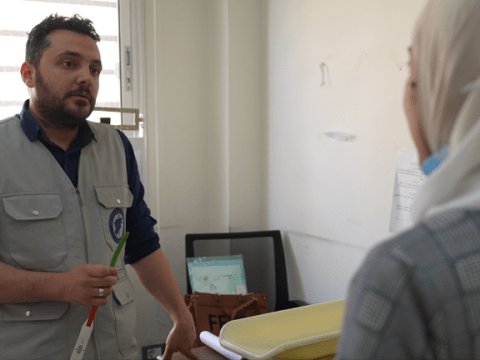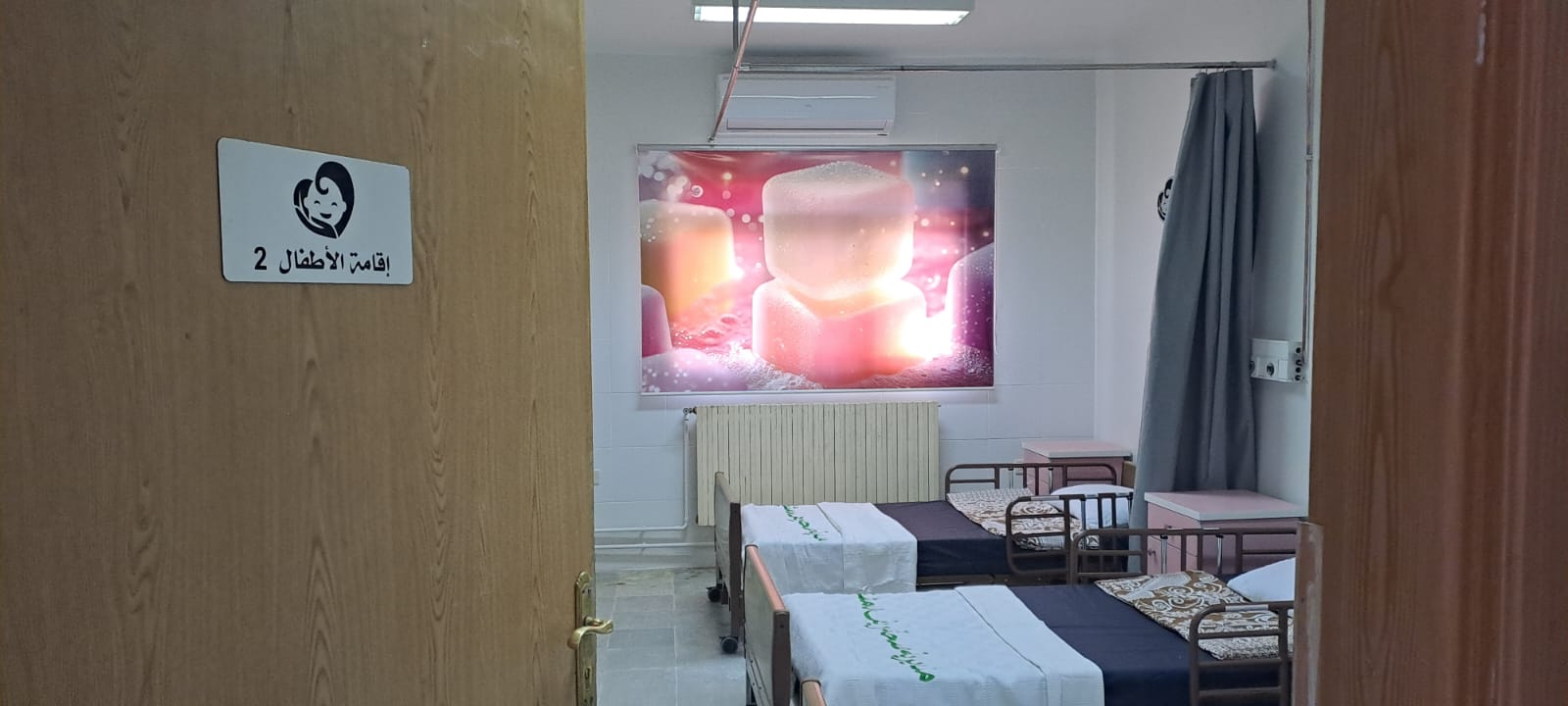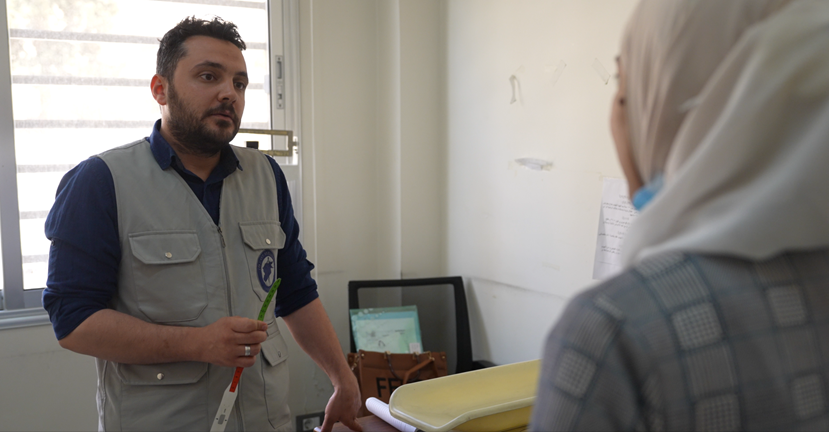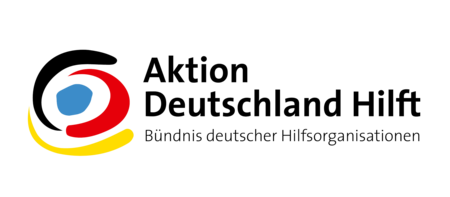Hand in hand in brining children’s smiles back

In Syria today, millions of children are growing up in aftermath of conflict, displacement, and inadequate infrastructure. Following more than 12 years of crisis, the country’s healthcare system is still struggling to stand as nearly 40% of hospitals and primary healthcare centers are either non-functional or severely limited. For families in many vulnerable communities, even the most basic medical care is often out of reach.
For six-year-old Nour*, this reality was all too familiar.
Nour had been suffering in silence for over a year. Severe tonsillitis, inflammation of the tonsils, had left him with severe throat pain, high fevers, and difficulty swallowing. He often couldn’t eat comfortably, was sleeping restlessly, and was missing many days of school.
“We were always worried, he was so tired, so pale. He used to be playful and talkative, suddenly, he barely had the energy to sit up. The condition affected him greatly,” says his concerned mother.
With each passing month, Nour missed more days of school. He couldn’t keep up with his classmates or play with his cousins and the family couldn’t afford a doctor’s visit or medication. His mother's heart ached every day, as she feared that this unhealthy condition would simply become her son's new reality.
The turning point came when the family heard about the World Vision Syria Response supported hospital in Rural Damascus. The hospital was known for providing high-quality, free healthcare services, and it had been vital to many Syrian families. The project, through the generous funding from Aktion Deutschland Hilft (ADH), provides free, high-quality pediatric, reproductive health, and nutrition services to vulnerable populations in Rural Damascus.
This includes outpatient and inpatient care, neonatal and gynecological consultations, malnutrition screening and referrals, and ongoing staff training. The hospital has also been rehabilitated and equipped to ensure safe, dignified, and effective healthcare.
At the hospital, a compassionate pediatrician, examined Nour thoroughly and confirmed the diagnosis, chronic tonsillitis, severe and persistent. But more importantly, she had a plan for Nour, a personalised course of medical therapy, with close monitoring and care.

After receiving the treatment he deserved and needed so much, Nour's mother felt for the first time that someone truly cared about her son and extended a helping hand., “the doctors were wonderful. My son felt safe. And I felt like I could finally feel at ease. My son will finally feel better!,” she happily shares.
Week by week, the improvement was evident. The infections slowed. His appetite was recovered. He began sleeping peacefully, then laughing again, chasing after his brother in the courtyard, just like before.
“From the moment he began treatment in the hospital, everything changed. He’s now recovered, healthy again, and finally got his wide smile back,” shares the mother.
This hospital serves a densely populated area and has become a critical lifeline for many. As it is located in one of the regions that wasn't heavily destroyed, it now hosts a large number of internally displaced people (IDPs), significantly increasing the demand for medical care. For many residents, especially those who cannot afford to travel long distances or pay for costly private care, this hospital is the only accessible and affordable healthcare option, providing continued and vital service.
Nour’s story is just one of over 14,000 individuals who will benefit from the ADH supported project in Syria, restoring dignity, hope and a future once blurred by conflict.

*Name is been changed to protect identity.
